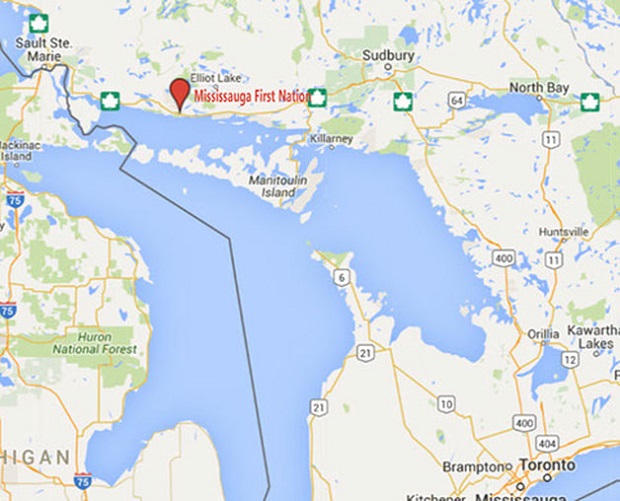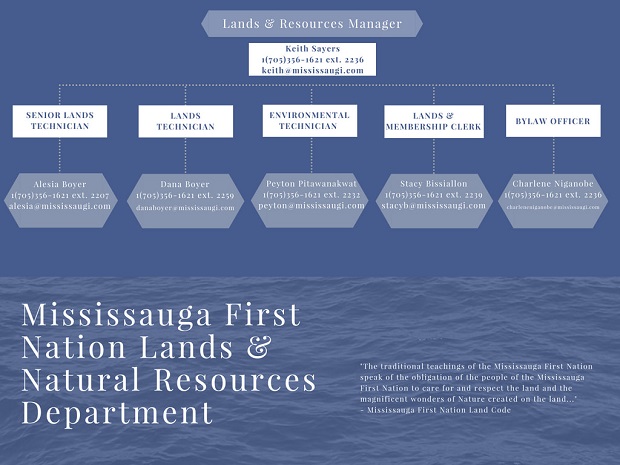Lands and Resources

- move forward with confidence that they have the information that they need,
- understand the effect that a decision may have on related issues, and
- make decisions consistent with the aspirations, needs and concerns expressed by their community.

Source: https://www.mississaugi.com/lands--natural-resources.html
Assist in enforcing rules and regulations of recreational facility and to assist in maintaining discipline and ensure safety of customers.
Mississauga First Nation is developing a Debaakinagewin Circle, a group of community who will utilize Anishinaabe principles of justice to make decisions about criminal diversion, administrative appeals, governance, and conduct mediation.
Under the direction of the Lands and Resources Manager and the Infrastructure Director, the Lands and Resources/ Data Management Technician will provide technical expertise in Geographic Information System (GIS) and Data Management support services (i.e. data entry, editing, manipulation and quality control), information product generation (including maps, queries, geo-processing, tabular summaries and reports), to Mississauga First Nation.
Provide effective programming client-based services related to family violence to assist clients in peer counselling, accessing services, advocacy, crisis intervention and referrals to engage community and staff.
Receive all incoming telephone calls and visits in person and to direct all inquiries and persons appropriately and with courtesy.
Provide support, education and encouragement to families in order to facilitate positive parent-child relationships, stimulate child development and promote healthy lifestyles.